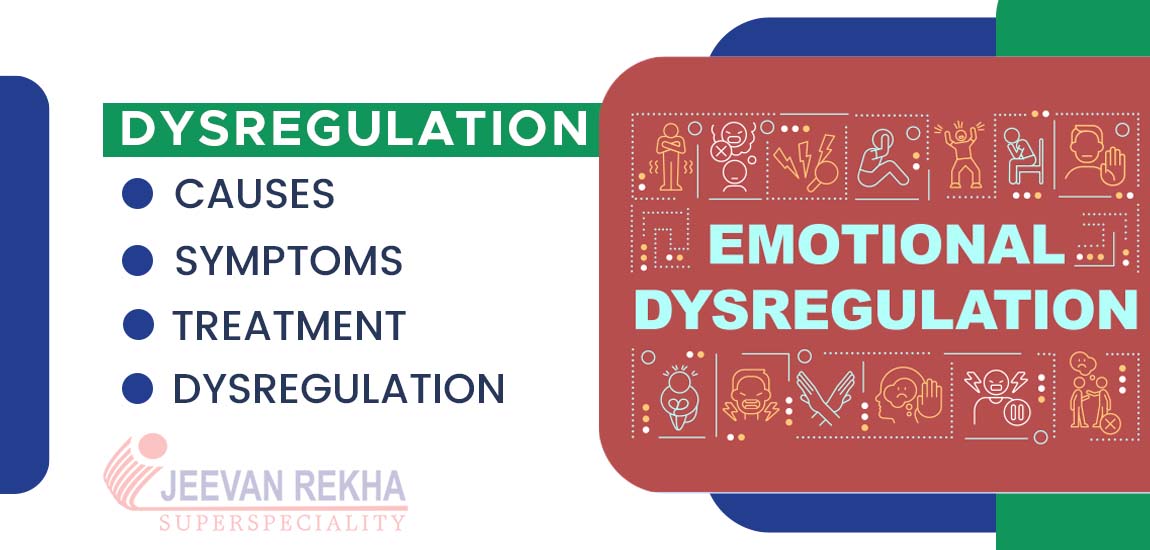
- By Admin
- In Health and Tips,
- Posted May 16, 2025
7-Day Diet Plan For Diabetic Patients
What is Diabetes?
A chronic disorder in which the body is failing to maintain adequate blood sugar-glucose-level-in-balance. This may happen if the pancreas fails to make the insulin that allows glucose to enter the cells for some energy purpose or possibly when the body is resistant to the insulin effects.
There exist primarily two types: Type 1 is basically when insulin-producing cells in the pancreas are destroyed by one's immune system, and Type 2 is mostly the most common form, where the body becomes resistant to insulin, or the pancreas cannot produce adequate insulin for the body.
If left unchecked, high blood sugar levels can cause complications such as heart disease, nerve damage, kidney issues, and vision impairment. Diabetes management may also involve lifestyle changes, depending on the medication given and monitoring blood sugar levels to prevent complications.
Importance of a Diet Plan for Diabetic Patients
The diet plan importance for diabetic patients can be summarized in key points:
- Blood Sugar Control: A good diet can assist in maintaining a stable blood glucose level, stoutly preventing any spikes or crashes that may eventually lead to complications.
- Improved Insulin Sensitivity: Correct food choices, especially low glycemic-index foods, help improve insulin sensitivity of the body, which is important in managing Type 2 diabetes.
- Weight Management: A healthy diet keeps the weight in check or helps in attaining weight that is considered healthy, lessening the burden on insulin and allowing better management of blood sugar, especially in Type 2 diabetes.
- Reduced Risk of Complications: Dietary control lessens the chances of developing diseases over a long period such as heart disease, kidney problems, nerve issues, and vision impairment.
- Better Energy Levels: A balanced diet keeps blood sugar steady, so there is no wastage of energy in feeling fatigued and more energy throughout the day.
- Prevention of Hypoglycemia or Hyperglycemia: You prevent the dangerous plummeting of blood glucose levels and a skyrocketing of blood glucose levels with a regulated diet plan.
- Support for Other Health Conditions: Diabetic patients are more prone to ailments such as high blood pressure and cholesterol. Heart-healthy eating helps to hold these conditions in check along with diabetes.
- Improved Digestion and Gut Health: Foods high in fiber, which constitute a significant part of a diabetic diet, help in proper digestion and in preventing constipation along with other digestive issues.
- Treatment Through Nutrition: Following an appropriate diet can sometimes eliminate the need for medication or lower the dosage, particularly with early-stage Type 2 diabetes.
- Improved Life: Achieving and maintaining target blood sugar levels along with improved health from a diet plan greatly improves balance, sleep, and enhances overall well-being.
You can read also : 5 Tips for a Happy and Healthy Summer
7-Day Diet Plan for Diabetic Patients
Simply put, a 7-day meal plan for diabetic patients must be made up of balanced meals intended to regulate the sugar level in the blood, supply the body with all the nutrients it needs, and promote good health. So, here is a sample plan that incorporates low-glycemic foods, lean proteins, good fats, and fiber-rich vegetables. Feel free to adjust the portion size or even to pick something completely else to suit preferences, activity levels, or medical advice.
Day 1:
Breakfast: Oatmeal made in almond milk (unsweetened); topped with chia seeds and a few slices of strawberries or berries.
- Snack: Small handful of almonds (about 10 to 12 almonds).
- Lunch: Grilled chicken salad with mixed greens, cucumbers, tomatoes, olive oil, and balsamic vinegar.
- Snack: Small apple with 1 tbsp of peanut butter (unsweetened).
- Dinner: Baked salmon with steamed broccoli and quinoa.
Day 2:
Breakfast: Scrambled eggs with spinach, onions, and tomatoes cooked in olive oil; and a slice of whole-grain toast.
- Snack: 1 small pear.
- Lunch: Quinoa and chickpea salad with cucumbers, bell peppers, and lemon olive oil dressing.
- Snack: Carrots with hummus.
- Dinner: Grilled turkey breast with roasted sweet potato and green beans.
Day 3:
Breakfast: Greek-style yogurt (unsweetened) with flaxseeds sprinkled over and blueberries.
- Snack: A small handful of walnuts.
- Lunch: Grilled shrimp and avocado salad with mixed greens, cucumbers, and lime vinaigrette.
- Snack: Celery sticks with 2 tablespoons of almond butter.
- Dinner: Stir-fried tofu with bell peppers, broccoli, and zucchini, served alongside brown rice.
Day 4:
Breakfast: Whole grain toast with avocado and a poached egg.
- Snack: 1 small handful of mixed nuts (unsalted).
- Lunch: Turkey and avocado lettuce wraps with sliced tomatoes and cucumber on the side.
- Snack: 1 small orange or grapefruit.
- Dinner: Grilled chicken breast with sautéed spinach and quinoa.
Day 5:
Breakfast: Chia pudding (unsweetened almond milk) with raspberries and almonds.
- Snack: 1 small apple or pear with a handful of pumpkin seeds.
- Lunch: Lentil soup with a side salad of mixed greens, cucumbers, and vinaigrette dressing.
- Snack: 1 small serving of low-fat cottage cheese and a few slices of cucumber.
- Dinner: Baked cod, roasted Brussels sprouts, and a small baked sweet potato.
Day 6:
Breakfast: Smoothie consisting of unsweetened almond milk, spinach, protein powder, chia seeds, and a handful of frozen berries.
- Snack: A small serving of pistachios.
- Lunch: Grilled chicken breast served with a quinoa and chickpea salad, topped with olive oil and lemon.
- Snack: A small serving of Greek yogurt with a handful of sunflower seeds.
- Dinner: Turkey meatballs in sugar-free marinara sauce with zucchini noodles (zoodles).
Day 7:
Breakfast: Almond butter and whole grain toast with some slices of banana.
- Snack: Hummus with a handful of baby carrots.
- Lunch: Grilled salmon with roasted cauliflower and mixed greens.
- Snack: 1 small apple or several berries.
- Dinner: Baked chicken thighs with sautéed kale and quinoa.
You can read also : Understanding Nursing care plan for Asthma ( NCP for Asthma )
Foods to Avoid for Diabetic Patients
Here is a brief rundown of foods diabetic patients should shun:
- Sweet foods & drinks (soda, candies, sweet coffee, ice cream).
- Refined carbohydrates (white rice, white bread, pasta).
- Deep-frying foods (french fries, fried chicken, fried snacks).
- High-glycemic foods (instant oats, rice cakes, mashed potato).
- Processed meat products (bacon, sausages, hot dogs).
- Whole-fat dairy products (cream, full-fat cheese, whole milk).
- Sugar-based condiments & sauces (BBQ sauce, ketchup, sweet salad dressing).
- Drinking alcohol in excess (sugar-based wines, beer, cocktails).
- Trans fats & hydrogenated oils (packaged snacks, margarine).
- High-sodium items (frozen dinners, canned soups, processed snacks).
- Artificial sweeteners (found in high concentrations).
- Excess nuts & nut butters (particularly those that are sweetened or oil-adDED).
- Fast foods (pizza, take-out meals fried, burgers).
Conclusion
At Jeevan Rekha Hospital, Jaipur, we realize the significance of controlling diabetes by a holistic method that not only comprises medical treatment but also lifestyle modifications.
A proper diet is important for diabetic patients, as it controls blood sugar levels, decreases the risk of complications, and maintains overall health. Our team of skilled healthcare professionals is committed to delivering personalized care, providing advice on healthy eating, and helping manage diabetes.
We urge our patients to adopt a diet plan based on their individual needs and wellness objectives, providing them with long-term health. Combined with consistent monitoring and medical care, strict adherence to diet can greatly enhance the well-being of people suffering from diabetes.
If you or your loved one is dealing with diabetes, we encourage you to visit our experts at Jeevan Rekha Hospital for end-to-end treatment and care. We can work together for a healthier future.
Tags
Blog Search
Latest Posts
-
PCOS Awareness Month: What Is PCOS, Symptoms, Fertility & Best Treatment Options
February 24, 2026 -
Mild Heart Attack: How Serious Is It?
February 19, 2026 -
Skin Ulcers Uncovered: Causes, Types, Symptoms, and Healing Options
January 13, 2026 -
Is Coconut Water Safe During Pregnancy? Benefits, Risks & Myths
January 08, 2026 -
Dark Circles Under The Eyes: Causes, Home Remedies and Treatments
December 21, 2025




